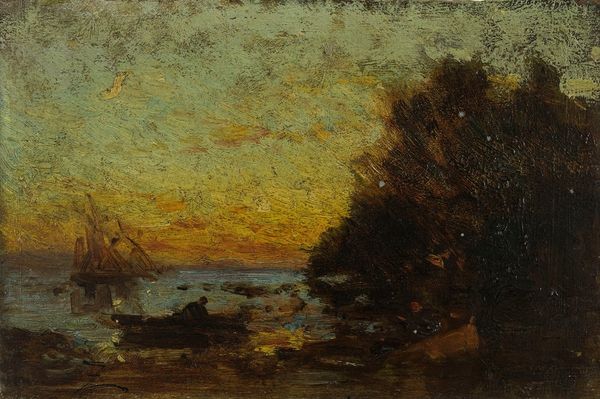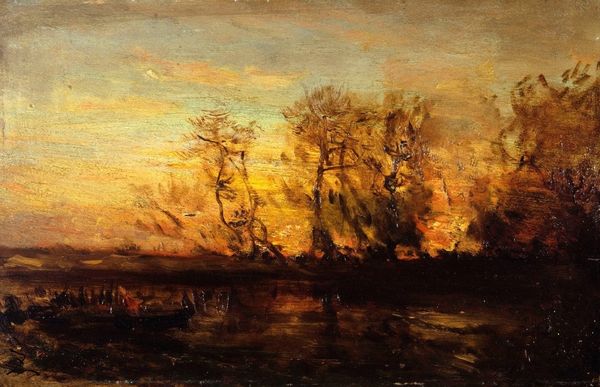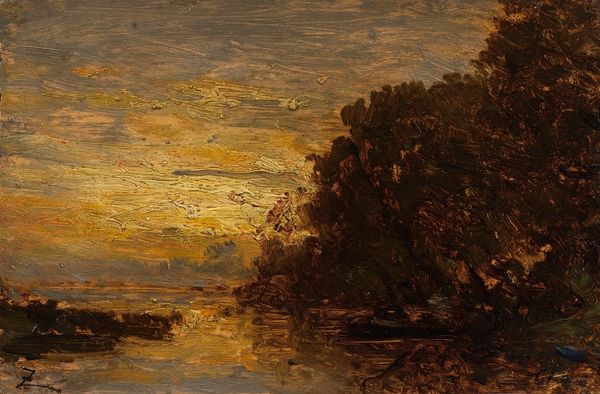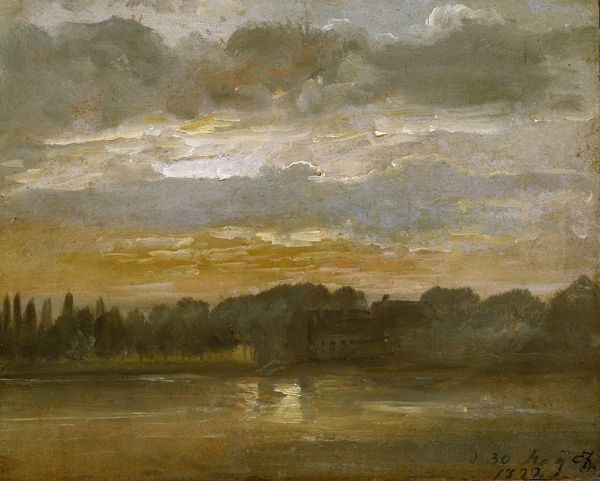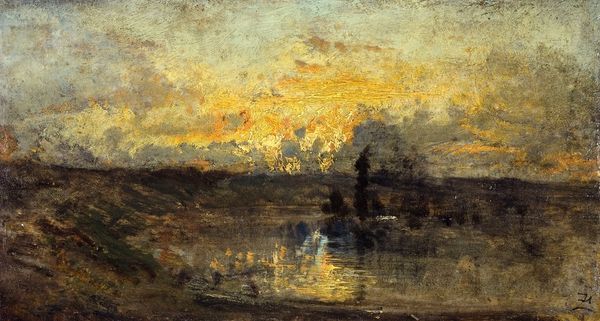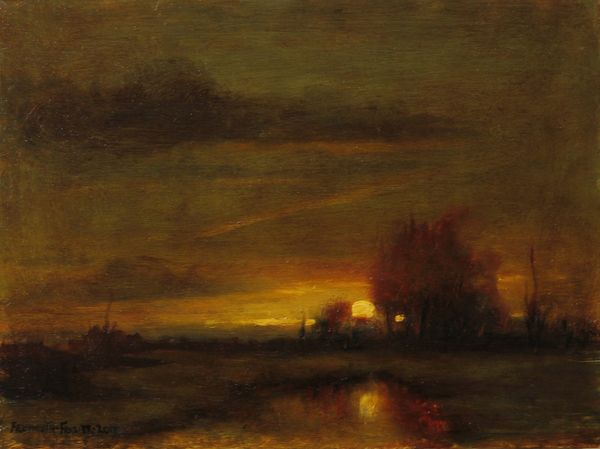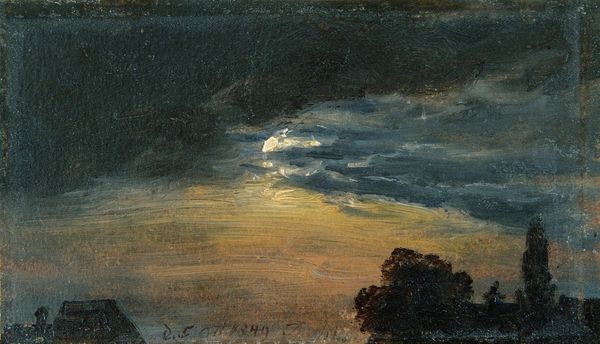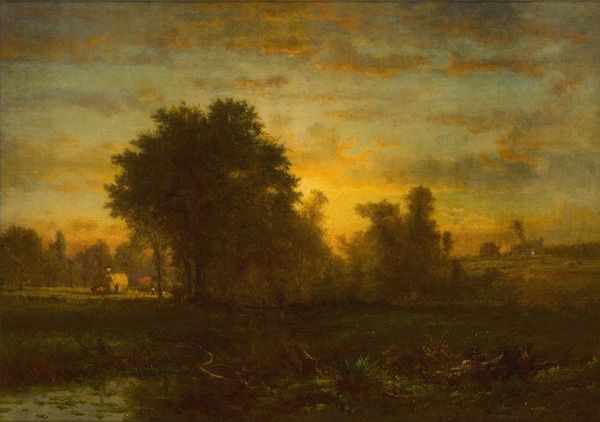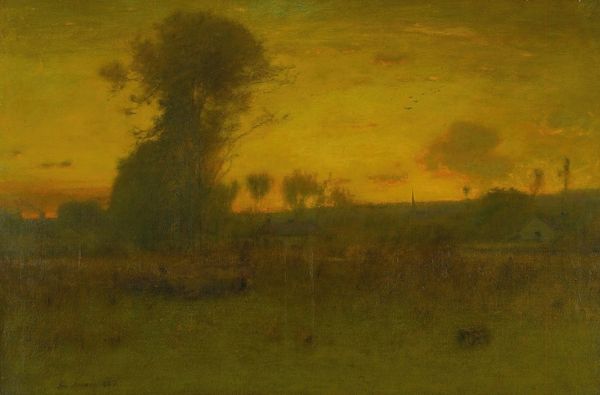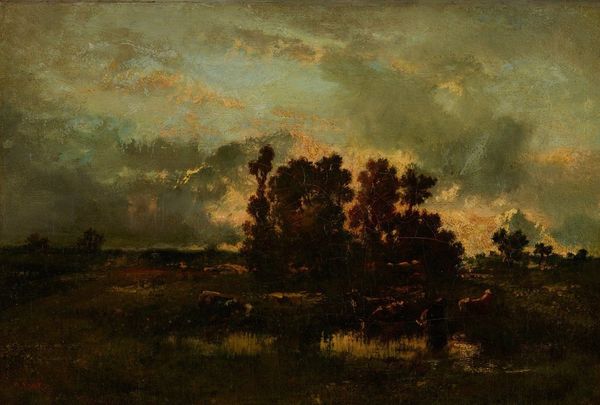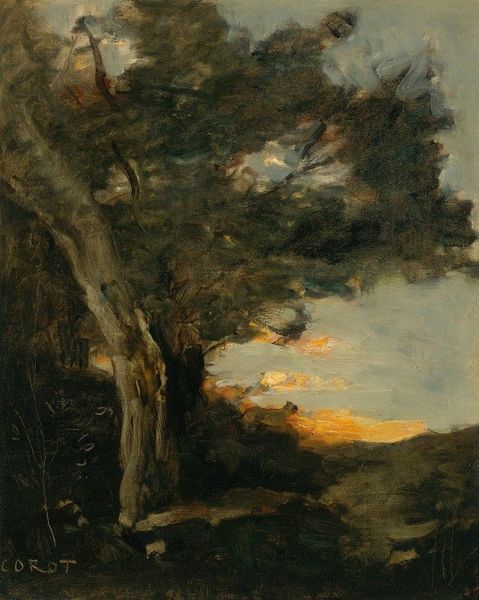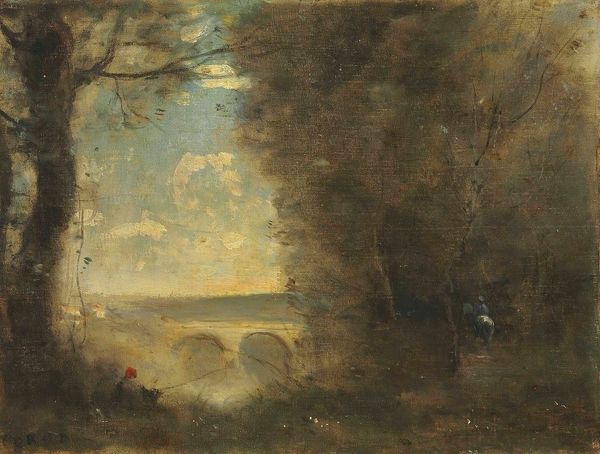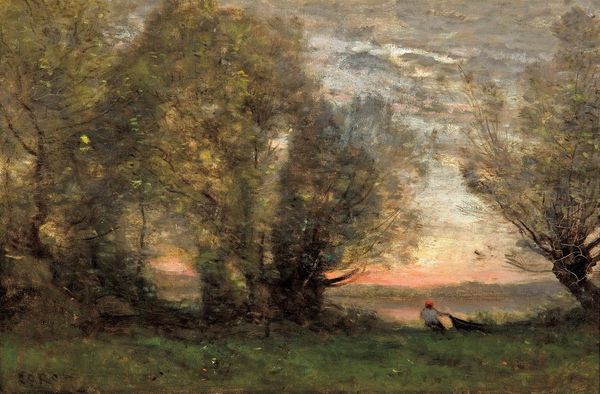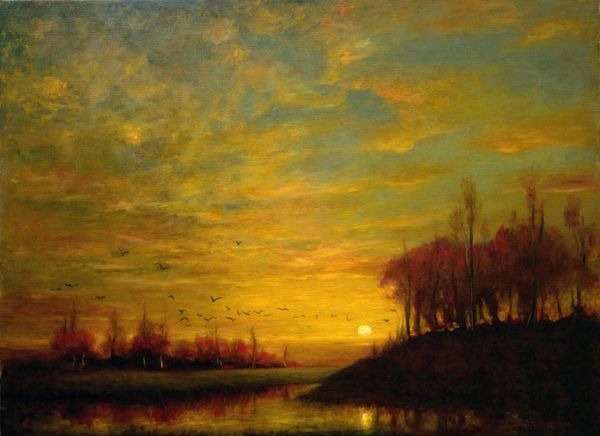
Copyright: Public Domain: Artvee
Curator: Here we have Félix Ziem's, "Plan d’eau, soleil couchant," created sometime between 1850 and 1860. The reverse contains two studies. Editor: Immediately, the sunset seizes attention. Thick brushstrokes make it so tactile, you can feel the heat radiating from the canvas. The impasto application of oil-paint gives it so much material presence. Curator: Ziem, throughout his career, focused quite intently on capturing light and atmosphere. His landscapes, and particularly his depictions of Venice and Constantinople, made him extremely popular with the art-buying public of his day. There's something about his romanticism that people still find appealing. Editor: The interesting element for me lies in trying to deduce the materiality of his paints. You see a kind of labor in the application, right? One can imagine him furiously mixing pigment on his palette to nail that certain hue or density of cloud before the sun dips too low. Curator: The piece certainly resonates with its era's artistic currents and values, reflecting the mid-19th century fascination with naturalism, though idealized with a rather theatrical light. But consider too the patronage system, Ziem knew how to court and sustain his collector base! Editor: So interesting when considering how it also resists categorisation, almost impressionistic in places, pushing back at the classic structures in some ways while being embraced by them. How did Ziem navigate that balance and did it inform his studio processes I wonder? Curator: It highlights the complex negotiations between artistic innovation and market demand that an artist like Ziem was bound to. What remains intriguing is how deeply personal expressions like these landscapes catered to public tastes that romanticized the natural world and picturesque destinations. Editor: Yes and in some ways the application, that furious movement is something of its own destination in itself; what an incredible moment suspended. Curator: An enduring testament to the play of light and brushwork and its position within that time, then! Editor: Indeed, the hand of the maker forever caught in this sunset.
Comments
No comments
Be the first to comment and join the conversation on the ultimate creative platform.
